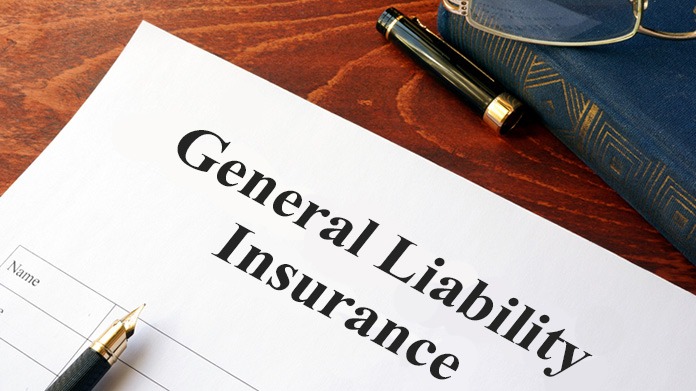When something goes wrong, it’s natural to panic and seek out the help of a professional. That’s why it’s so important to have general liability insurance in place—to protect you and your business from unforeseen and costly legal costs. And if you own a business, you should know that there are a myriad of factors to take into account when selecting this type of insurance. In this blog post, we will provide you with a comprehensive guide to understanding and selecting general liability insurance.
What is General Liability Insurance?
General liability insurance (GL) protects individuals and businesses from lawsuits that may arise as a result of their actions or omissions. GL policies typically cover damages that are suffered by others as a result of injuries, property damage, public liability, and product liability claims.
GL coverage is important for any business because it can help protect its assets from potential losses in the event of a lawsuit. It’s also important for individuals who may be involved in activities that could lead to legal trouble. For example, if you’re a doctor and you negligently cause an injury to a patient, your general liability policy may provide coverage for the victim’s damages.
There are several factors to consider when selecting a GL policy: the amount of coverage you need, the deductible, the premium rate, and the exclusions. You should also consider whether you want to include personal liability coverage (PL), which covers injuries caused by other people while they’re acting on your behalf (eg., employees).
The most important factor when choosing GL insurance is understanding your potential exposures. You should make sure to compile a list of all the liabilities that could potentially give rise to a lawsuit, and identify which ones would be covered by your policy.
Types of Coverage
There are a few different types of coverage you may want when shopping for general liability insurance. The most common type is property damage liability insurance, which will cover you if someone damages your property and you are legally liable for the damage. You may also want to consider personal injury liability insurance, which will cover you if someone injures . There are also policies that cover bodily injury and professional negligence, which will protect you if someone causes injury to yourself or another person while performing their job duties or acting in a professional capacity.
Once you have decided on the type of coverage you need, it’s important to understand the limits of each policy. Each policy has specific limitations, including how much money the insurer is willing to pay out in case of a claim and whether the policy covers intentional acts or only accidents. It’s also important to make sure that the policy includes adequate protection for your business. Many businesses require policies that include commercial general liability coverage, which can protect your company from financial damages awarded by a court or jury as well as from third-party claims filed by customers, employees, or contractors.
How to Choose the Right Policy
When you are shopping for insurance, there are a few things you need to keep in mind. The first is your needs. Do you need property insurance? Personal liability insurance? Business liability insurance? You need to decide what is most important to you and make a policy that reflects that.
Next, think about your budget. How much can you afford to pay each month for insurance? Consider factors like exclusions (what policies does the insurer not cover), rates, and deductible amounts.
Then, think about what kind of coverage you need. Are you primarily worried about personal injury or property damage? Most insurers offer both types of policies, so it’s important to shop around and find one that offers the coverage you need at a price you can afford.
Once you have all of this information, it’s time to go shopping for insurance. There are numerous companies out there offering different types of policies, so do some research on each company and pick the one that best suits your needs and budget.
Determining The Right Amount of Coverage
When it comes to protecting your business from potential legal liabilities, having the right amount of general liability insurance is key. Here are a few factors to consider when determining the coverage you need:
- Your Business Size
Small businesses typically only need basic liability insurance, which covers personal injuries and damage to property. Larger businesses may need more comprehensive coverage that includes financial compensation for losses (including lost profits) caused by lawsuits filed against the company.
- The Nature of Your Business
Certain businesses are more likely to face lawsuits than others. For instance, restaurants have a high risk of being sued for food poisoning or other injuries caused by their customers, while computer companies are frequently sued due to faulty products or software defects. Consider your business’ risk profile before choosing the level of coverage appropriate for it.
- The Location and Duration of Your Operations
Businesses located in high-risk areas such as California or Florida may require more comprehensive insurance coverage than those located in less risky areas. Also, remember that risks tend to increase over time – if your business has been in operation for several years, it is likely that there have been some incidents that could lead to a lawsuit. Check with your insurer to see what type of coverage is appropriate for your business and location.
Conclusion
In today’s world, it is important to be well-protected both financially and legally. That’s why we have written this comprehensive guide to understanding and selecting general liability insurance. Whether you are a small business owner or an individual looking to protect yourself from personal injury lawsuits, our guide will help you get the coverage you need to safeguard your assets and keep your family safe. Thanks for reading!
Apart from that, if you are interested to know about Benefits of having an online business for personal finance hen visit our Finance category.








